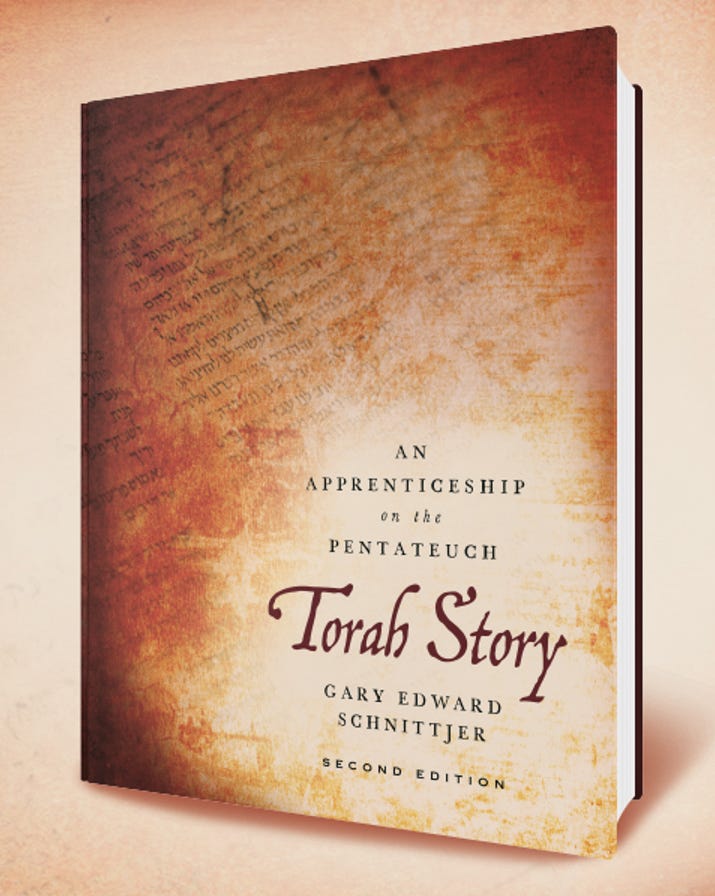Many Christians are embarrassed by parts of the Bible. We do not talk about it. There are no refrigerator magnets for these verses.
More and more modern scholars have declared passages in Torah as “immoral.” Biblical teachings about slavery, sexual purity, patriarchy, killing all of “those people,” death penalty for seemingly minor religious infractions, and the like embarrass Christians. Some modern scholars want to get rid of these teachings. It is not clear why we need to get rid of them when Christians are so good at ignoring them.
The embarrassing parts of the Bible desperately need attention. It is something I have been speaking about in many places. It is something I am researching to write about.
Ashamed of Scripture
Growing up we didn’t need to worry about the embarrassing parts of the Bible. No one at church taught these passages. In the rare moments when we started to read through the Bible . . . (I say “started” because things usually bogged down in the first few books.) In those rare moments that we read the embarrassing verses that are mostly in Torah and we asked our teachers at church about them, they brushed them aside. They told us not to worry because Jesus came and got rid of these nasty teachings.
That worked fine back in the day. But ignoring the embarrassing passages does not help kids today. The digital ecosystem of our day shames Christian young people about the so-called hateful God of the Bible. Trolls SHOUT at kids and humiliate them about the Bible.
Kids are fine at church because teachers there still ignore the embarrassing passages. On any given Sunday young people learn that we do not need to worry about the wrathful God of the Old Testament. Jesus is really nice.
Most of the good folks of the older generation of Christians are not even aware of the issue. They have the ebay, the email, and the AOL and they think they know all about youth culture.
The digital shaming of people who uphold the Christian Bible is no secret. But it does not seem like a serious problem as long as we can set nice Jesus against mean God. This dominant approach to the problem seems to satisfy most folks. Even if it’s not actually a Christian view.
Growing Disappointment with My Torah Classes
I have taught Torah virtually every semester for nearly thirty years in college and seminary courses. I love it.
Slowly I began to be troubled by the difficult passages that I had not dug into in the first edition of my textbook on the Pentateuch. I was never one to be afraid of the obscure or the challenging. Ask my students about my interest in the verses that no one has ever heard of. In the first edition of my textbook, however, I had camped on the “more important passages.” So, in my classes over the semesters I began to emphasize the underexplored parts of Torah in addition to the “important” ones.
A few years ago I was invited to produce a Second Edition of my textbook on Torah. I had many ideas. One set of adjustments came in the form of focusing more attention on the so-called embarrassing passages that my students prefer to ignore.
Listen to what I emphasized in a short video introducing to the Second Edition of Torah Story. This video was made at a pastor’s request two years ago this month when the book came out.
Introducing Torah Story second edition
All of the above about my Torah textbook is part of the background of the point at hand. It prepared me for what is a new area of research for me.
Why We Need to Emphasize the Embarrassing Verses
I was invited to do a conference paper for the Torah Section of the Evangelical Theological Society this past November in San Diego. The paper pushes back against scholarship that wants to do away with the so-called “immoral” teachings of Scripture, clustered mostly in Torah. Among the conclusions of the paper is a need for us to emphasize these passages in our teachings. Why?
Because we have been wrong about these biblical teachings. When we examine them closely in context they point to the grace of Yahweh for the neediest of people.
A couple of journals have invited me to submit the paper as an article for publication. (I did to one and it has been accepted. I will come back to that article another time.) Zondervan also invited me to submit a book proposal on the subject-matter of the paper. (I did and they have offered me a contract. I will also come back to that book at another time.) For the moment, I want to highlight a passage from this book proposal.
“There is no need to be afraid of biblical teachings that are scorned as ‘immoral’ by today’s standards—slavery, “genocide,” patriarchy, sexual mores, capital punishment for minor infractions including religious infractions, and more. . . . Our day badly needs close attention to Scripture teachings that have been abandoned for fear that they are immoral. It turns out that emphasizing difficult moral passages in the Bible of Jesus . . . reveal God’s fairness and the way he takes care of the vulnerable.”
The thesis of the book in my proposal is: “The parts of the Bible of Jesus that embarrass Christians often reveal the grace of God for those who need it most.” I look forward to sharing more about this project in the months ahead.
A senior Christian journalist whose books have helped me is Phil Yancey. He pioneered bringing readers back to the Old Testament. He asks hard questions about where is God in the midst of suffering. He writes about disappointment with God because of undeserved misery. Yancey has not been shy about confronting the dark side of fundamentalist American Christianity. Growing up in a northern version of rigid fundamentalism myself, much like Yancey’s (but without the southern baggage), I have benefited from several of his books.
Imagine my surprise when I read in his memoir what Yancey said about a close family member in contrast to himself:
“She’s more comfortable with the Old Testament God of judgment and wrath, with having very few people in the world that God loves” (Where the Light Fell, New York: Convergent, 2021, chapter 23).
This statement puzzles me. Does Yancey mean this? I want to say that he does not have such a low view of the God of the Old Testament. Elsewhere in the book Yancey pronounces his youthful racist views without qualification to show that this is what he was really brought up to believe. But the passage quoted above disparaging the God of the Old Testament is not from his youth. It is from his adult life. And the context makes it seem like he continues to espouse this viewpoint. I have been thinking of writing to Yancey about this statement.
I want him to tell me that this statement represents a mistaken view of the God of Israel from which he has recovered. But what if he doesn’t tell me what I hope for? If he tells me anything.
If even a Phil Yancey—someone who told us about the Bible Jesus studied and the God we can trust in times of suffering—casts the God of the Old Testament in such a light, we desperately need to investigate the Scripture teachings that embarrass Christians.
If we take the time, we will find that Torah’s case laws about rape and slavery speak protections for the most vulnerable of ancient persons. These passages reveal that the God of Israel protects and provides for the people who need help more than anyone else.
These Scripture teachings are not embarrassing if we take the time to study them in their ancient and biblical contexts. These teachings shine a light on the grace of Yahweh.
Coming Up
I hope you will join me to explore the embarrassing teaching of Scripture in the months ahead. I am busy at work on other projects that I will need to share first. But we’ll wrestle with the embarrassing teachings of Torah before long.
Please look for next month’s feature “Going Vertical with the Bible.” And if you subscribe (free or donation) you’ll also get a bonus issue of Carpenter’s Student in a couple weeks.
Later this summer, watch for announcements about live events available exclusively to subscribers of Carpenter’s Student.
Thank you for reading.






Thanks Gary for sharing this. I did a search and came up with these difficult topics: Genocide, Slavery, Treatment of Women, Polygamy, Vengeance Psalms, God Hardening Hearts, Animal Sacrifice, Ritual Purity Laws, Child Sacrifice References, Patriarchy, Harsh Punishments (e.g., stoning), Eternal Curses, Holy War, Nationalism, Divine Jealousy, God Sending Evil Spirits, Levitical Sexual Laws, Ethnic Exclusivity, Capital Punishment for Minor Offenses, and Violence in God’s Name. I can see why these would be embarrassing and hard to discuss. I appreciate you talking about these topics. Looking forward to learning more.
Dear Gary,
I find the grammar of the sentence quoted quite awkward: “She’s more comfortable with the Old Testament God of judgment and wrath, with having very few people in the world that God loves” (Where the Light Fell, New York: Convergent, 2021, chapter 23)."
Would something like this make more sense: "She has felt overwhelmed by the number of people in the world who have seemingly rejected God's love and herself ("in [her] eyes") as well. Through this lens, she tends to see God as the God of the Old Testament blessings and curses, a system that seemingly brings judgment and wrath to Israel before Jesus arrives incarnated.
However, since Jesus has moved into her own heart (thanks to Keith B. for the "My Heart, His Home" pdf), she has seen that, for instance, (as her More-mom taught her mom): it is loving to set boundaries for one's children. As her Pop-pop showed her: it is a good thing to withhold a gift from a child in order to encourage the child to not presume to receive that gift. As her Granny and her own mom in earlier years taught her: love is lived out quietly, though gentle lullabies, and a PB&J when tuna doesn't sound good.
This is just a rough draft, but I did want to reply to you! Thank you for teaching so well!
Wendy